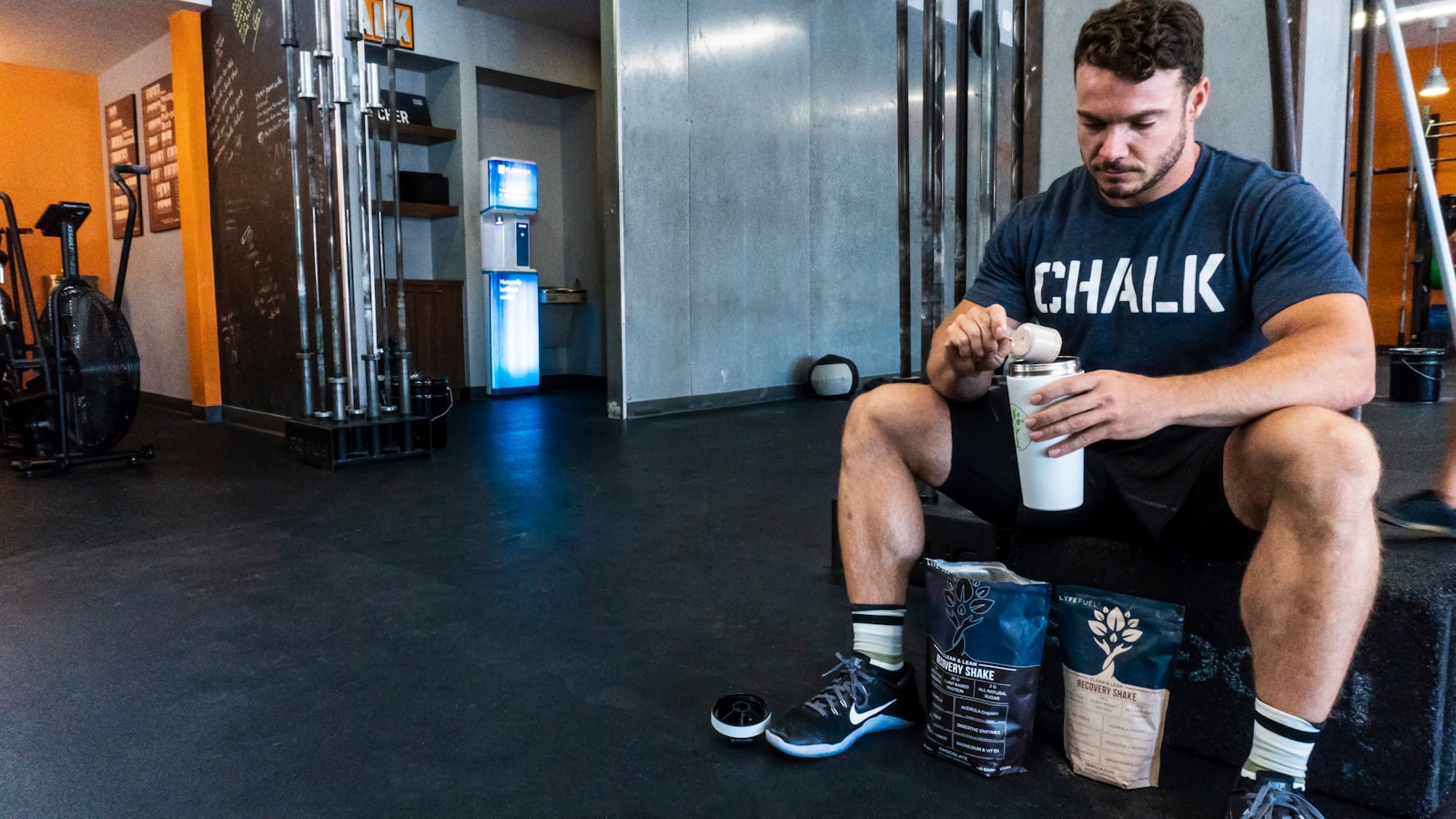When it comes to building muscle, protein is arguably the most critical macronutrient. It provides the essential amino acids your body needs to repair and grow muscle tissue after resistance training. However, one of the most common questions among fitness enthusiasts and those looking to increase muscle mass is: How much protein per day is needed to build muscle? The answer varies depending on several factors, including your body weight, activity level, and fitness goals. In this post, we’ll explore the science behind protein requirements for muscle building, how to calculate your protein needs, and practical tips for meeting your daily protein intake.
The Role of Protein in Muscle Building
Protein plays a crucial role in muscle repair, growth, and overall health. When you engage in resistance training or other forms of exercise, your muscle fibers undergo tiny tears. Protein provides the building blocks, known as amino acids, that your body needs to repair these tears and build stronger, larger muscles.
Muscle Protein Synthesis:
Muscle protein synthesis (MPS) is the process through which your body repairs and builds muscle tissue. For muscle growth to occur, MPS must exceed muscle protein breakdown (MPB), which is the natural process of muscle tissue degradation. Consuming adequate protein is essential for stimulating MPS and promoting muscle growth.
Amino Acids:
Amino acids are the building blocks of protein, and they play a vital role in muscle repair and growth. There are 20 different amino acids, nine of which are essential—meaning they must be obtained through diet because the body cannot produce them. Leucine, one of the essential amino acids, is particularly important for stimulating MPS.
How Much Protein Do You Need?
Determining how much protein you need to build muscle depends on several factors, including your body weight, activity level, and the intensity of your workouts. Let’s break down the recommended protein intake for muscle building based on these factors.
General Guidelines:
- Sedentary Individuals: The Recommended Dietary Allowance (RDA) for protein for the average sedentary adult is 0.8 grams of protein per kilogram of body weight (0.36 grams per pound). This amount is sufficient to meet the basic protein needs of individuals who are not physically active.
- Active Individuals: For those who engage in regular physical activity, particularly resistance training, higher protein intake is required to support muscle repair and growth. The general recommendation for active individuals is 1.2 to 2.2 grams of protein per kilogram of body weight (0.54 to 1.0 grams per pound).
- Athletes and Bodybuilders: For athletes, bodybuilders, and those who engage in intense training, protein needs may be even higher. Some experts recommend consuming up to 2.4 grams of protein per kilogram of body weight (1.1 grams per pound) to optimize muscle growth and recovery.
Calculating Your Protein Needs:
To calculate your protein needs, use the following formula based on your activity level and body weight:
- For Sedentary Individuals:
Body weight (kg) x 0.8 = daily protein intake in grams
Example: 70 kg (154 lbs) x 0.8 = 56 grams of protein per day - For Active Individuals:
Body weight (kg) x 1.2 to 2.2 = daily protein intake in grams
Example: 70 kg (154 lbs) x 1.5 = 105 grams of protein per day - For Athletes and Bodybuilders:
Body weight (kg) x 1.6 to 2.4 = daily protein intake in grams
Example: 70 kg (154 lbs) x 2.0 = 140 grams of protein per day
Factors That Influence Protein Requirements:
Several factors can influence how much protein you need to build muscle, including:
- Training Intensity and Frequency: The more intense and frequent your training sessions, the higher your protein needs will be. This is because intense exercise increases muscle protein breakdown, necessitating more protein to support recovery and growth.
- Age: Older adults may require more protein to counteract age-related muscle loss (sarcopenia) and support muscle maintenance. Research suggests that older individuals benefit from protein intakes at the higher end of the recommended range.
- Body Composition Goals: If your goal is to gain lean muscle mass, you may need more protein than someone who is primarily focused on maintaining muscle while losing fat. Additionally, those with higher muscle mass typically require more protein to support their larger muscle tissues.
- Overall Diet: Your total caloric intake and the balance of macronutrients (carbs and fats) in your diet can also influence how much protein you need. A diet that is low in calories may require a higher percentage of protein to prevent muscle loss during weight loss.
Protein Timing and Distribution
While the total amount of protein you consume each day is crucial, the timing and distribution of protein intake throughout the day can also impact muscle building.
Protein Timing:
Research suggests that spreading your protein intake evenly across meals can optimize muscle protein synthesis. Aim to consume 20-30 grams of protein per meal, depending on your total daily protein needs. This approach ensures that your muscles receive a steady supply of amino acids throughout the day, promoting continuous muscle repair and growth.
Pre- and Post-Workout Protein:
Consuming protein before and after your workouts can further enhance muscle recovery and growth. Pre-workout protein provides your muscles with the amino acids needed to minimize muscle breakdown during exercise. Post-workout protein helps kickstart muscle protein synthesis and supports recovery.
Before Bed:
A casein-rich protein source before bed can be beneficial, as it provides a slow-digesting protein that supplies your muscles with amino acids throughout the night. This can help prevent muscle breakdown during the fasting period of sleep.
Sources of High-Quality Protein
To meet your daily protein needs, it’s important to include high-quality protein sources in your diet. High-quality proteins contain all nine essential amino acids in adequate amounts, making them ideal for muscle building.
Animal-Based Protein Sources:
- Chicken Breast: Chicken breast is a lean source of protein, providing about 31 grams of protein per 100 grams. It’s versatile and can be used in a variety of dishes.
- Turkey: Similar to chicken, turkey is a lean protein source that offers about 29 grams of protein per 100 grams.
- Eggs: Eggs are a complete protein source, with one large egg providing about 6 grams of protein. They’re also rich in vitamins and minerals.
- Fish: Fish, such as salmon, tuna, and cod, are excellent sources of protein and omega-3 fatty acids. Salmon, for example, provides about 25 grams of protein per 100 grams.
- Greek Yogurt: Greek yogurt is a dairy-based protein source that offers around 10 grams of protein per 100 grams. It’s also rich in probiotics, which support gut health.
Plant-Based Protein Sources:
- Tofu: Tofu is a soy-based protein that provides about 8 grams of protein per 100 grams. It’s a versatile ingredient that can be used in both savory and sweet dishes.
- Lentils: Lentils are a high-protein legume, offering about 9 grams of protein per 100 grams cooked. They’re also rich in fiber and iron.
- Chickpeas: Chickpeas provide about 8 grams of protein per 100 grams cooked. They can be used in salads, stews, or blended into hummus.
- Quinoa: Quinoa is a complete plant-based protein, providing about 4 grams of protein per 100 grams cooked. It’s also a good source of fiber and essential amino acids.
- Protein Powders: Plant-based protein powders, such as pea protein, hemp protein, and brown rice protein, can be used to supplement your diet, especially if you have higher protein needs.
Practical Tips for Meeting Your Protein Needs
Meeting your daily protein requirements doesn’t have to be complicated. Here are some practical tips to help you incorporate more protein into your diet:
Plan Your Meals:
Planning your meals in advance ensures that you include protein-rich foods in each meal. Aim to include a source of protein at every meal and snack.
Use Protein Supplements:
If you struggle to meet your protein needs through food alone, consider using protein supplements, such as whey protein or plant-based protein powders. These can be added to smoothies, oatmeal, or used in baking.
Mix Protein Sources:
Combining different protein sources in your meals can help you meet your protein goals while providing a variety of nutrients. For example, mix beans with rice or add nuts to your yogurt.
Snack Wisely:
Choose protein-rich snacks, such as Greek yogurt, cottage cheese, hard-boiled eggs, or protein bars, to keep you full and support muscle growth between meals.
Track Your Intake:
Tracking your protein intake using a food diary or app can help you stay on top of your protein goals and make adjustments as needed.
Conclusion
Determining how much protein per day is needed to build muscle depends on your body weight, activity level, and fitness goals. By understanding your protein needs and incorporating high-quality protein sources into your diet, you can support muscle repair, growth, and overall health. Remember to focus on both total protein intake and the distribution of protein throughout the day to maximize muscle protein synthesis. With the right approach, you can fuel your body for optimal muscle gains and achieve your fitness goals.
Tags: muscle building, protein intake, daily protein needs, muscle protein synthesis, high-protein foods, strength training, bodybuilding, fitness nutrition, protein sources, protein timing





